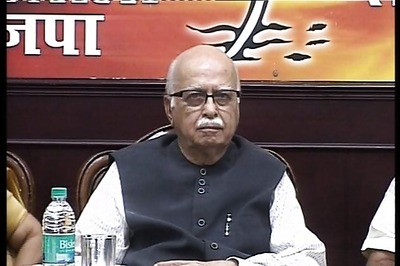
views
Srinagar: Hours after Governor Satya Pal Malik dissolved the Jammu and Kashmir Assembly, the State Administrative Council chaired by him decided to turn the J&K Bank Ltd into a public-sector bank.
The move will result in the bank’s autonomy being taken, making it accountable to the state legislature, which does not exist at the moment.
The bank has also been brought under the purview of the Right to Information Act and the guidelines of the Central Vigilance Commission, according to a report by PTI. An unidentified official said the bank’s annual report would be submitted to the state legislature through the finance department, like other public sector banks.
National Conference (NC) leader Omar Abdullah called it a “disturbing development” and said the governor was a caretaker administrator who does not “have the people’s mandate to take such major decisions with far-reaching implications”, reported The Indian Express.
Peoples’ Democratic Party leader and former Chief Minister Mehbooba Mufti termed it a “disturbing step to snatch every bit of autonomy that our institutions have”.
On Thursday, Mufti attempted to stake claim to form the government in the state, which has been under Governor’s rule since June, with the help of the National Conference and the Congress.
Peoples’ Conference leader Sajad Lone, who has the support of the Bharatiya Janata Party, said his party’s economic philosophy was decentralisation and liberalisation.
“We believe in smaller government, not more government control,” Lone said. “The best thing the government of the day can do is to get out of the way. Any remedies [regarding J&K Bank] should have been institution-specific, rather than invading it with overarching government control. The track record of J&K government PSUs is extremely bad.”
The state government holds 59.3 percent stake in J&K Bank. The bank’s press and information director said the move was a step towards strengthening corporate governance. “As the state is a major shareholder in J&K Bank Ltd, a need was felt that it should have a character of a PSU, which is subject to general supervision and access for enhanced transparency in the transaction of its business to promote trust,” read a statement from the bank.
Until now, J&K Bank was classified as an ‘old private sector bank’ and supervised by the Reserve Bank of India. Besides, it is also subject to oversight by the Comptroller and Auditor General (CAG).
The J&K state holds a majority or 59.3 percent stake in the bank. In a statement Thursday, J&K Director, Press and Information, said, “As the state is a major shareholder in J&K Bank Ltd, a need was felt that it should have a character of a PSU which is subject to general supervision and access for enhanced transparency in the transaction of its business to promote trust.” “The purpose is not to question the day-to-day activities of the bank management but a step towards strengthening better corporate governance,” the statement said.
Former J&K Bank chairman M Y Khan, who led the bank for eight years, said such a decision should not have been taken. “This will have a long-term impact on the bank’s functioning as it will be exposed to agencies and instruments of the state. It will also affect decision-making because every decision will have to be double-checked by the state,” he said. “Even if there were issues, corrective measures could have been taken, but not such a drastic measure.”
According to Mehbooba Mufti, there were clear signals suggesting several such interventions to take away autonomy of institutions that J&K enjoyed. “J&K Bank is part of that. This is why we came together with the NC and the Congress to form a government and prevent such interventions,” she said.
















Comments
0 comment